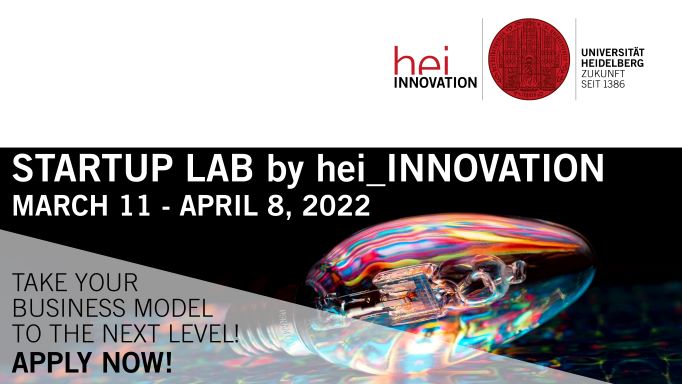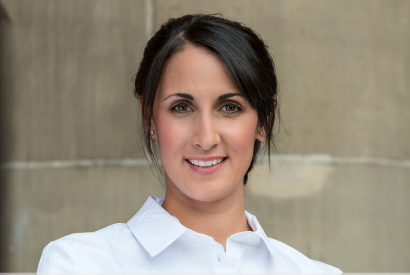Apply now for the BadenCampus Startup Accelerator!
You have developed a solution in the field of Energy & Cleantech, Smart City & Industry or Life Science & Healthcare and are about to enter the market with your startup? Then apply for the BadenCampus Startup Accelerator by April 6th.
Deep tech solutions are a great opportunity to change our world and create a more sustainable, safer and better life. If you want to combine the physical and the digital world with your startup idea, the Startup Accelerator is the central point of contact.
Deep-Tech- Startups wanted!
The focus of the program is on teams from technology fields in the field of microsystems technology such as sensors, actuators, 3D printing, robotics, printing and pump technologies, optics, AR/VR, in-vitro diagnostics, nanotechnologies or microfluidics.
In connection with artificial intelligence, radio technologies such as 5G or cloud computing, these technologies are elementary to create digital images of nature, machines, components, cities and traffic or the human body – and to convert digitally developed solutions into physical reality.
Your benefits at a glance:
- Strong industrial network (energy industry, measurement, control and regulation technology, mechanical engineering, medical technology, etc.)
- Individual support with critical feedback and strong peer teams
- Intensive mentoring with more than 10 mentors per workshop
- Extensive access to test municipalities such as Breisach am Rhein, etc.
- Networking with healthcare facilities
- International scaling via friendly accelerators
- Fancy co-working space and access to top-level test infrastructure
- Access to investors and funding including a convertible loan of EUR 200,000 via start-up BW Pre-Seed
Teams in our program create solutions for protecting the climate and water, for resource-saving processes in industry and smart cities or for high-quality medical therapies – together with our network of strong industrial players and innovative municipalities as well as leading international research institutions, investors and experts.
More information about the programme
The STARTUP LAB by hei_INNOVATION starts at March 11 - we are part of it!
The STARTUP LAB by hei_INNOVATION of the Transfer Agency of Heidelberg University supports students, young scientists and alumni of the universities in BW who have a business idea and want to take it to the next level of development. The four-week programme will be launched on 11 March.
4 weeks, 10 teams, 10 ideas
During the free four-week program, participants learn to think like an entrepreneur, to further develop their idea with new, creative methods and to transfer it into a portable, scalable business model. The participants will also be prepared to pitch this model to inverstors. The teams are accompanied by the hei_INNOVATION team and trained coaches and mentors from the world of entrepreneurship – Peter Neske, Innovation Lead at Hub Freiburg, will also coach a team of participants in a 1:1 mentoring.
We are looking forward to support this great program!
More information

Welcome Julia Sahba!
We are happy to announce a new team member: Julia Sahba will support our Berlin team as Manager DTx Development. Julia brings many years of experience working with digital patient solutions, e-health and startup collaborations.
She was initially responsible for the support and implementation of digital therapy concepts for cross-indication "Beyond the Pill" approaches at Berlin Chemie AG. At Pfizer, Julia was previously Commercial Strategy Manager, responsible for setting up digital solutions in the indication area of metastatic breast cancer and implementing omni-channel projects in the area of biosimilars.
At Pfizer Healthcare Hub, Julia will be involved in our collaborations in Digital Health and will be a direct point of contact for interested startups to ask questions about working with Pfizer. If you have questions about collaborations between Pfizer and startups, write to Julia!
Click here for contact details
Pfizer Germany and Alex Therapeutics enter strategic partnership in the field of digital behavioral therapies
Alex Therapeutics combines the latest insights from the psychology of cognitive behavioral, acceptance and commitment therapy with the power of artificial intelligence to develop an AI-powered platform for digital therapies: the "AlexDTx Platform." The Swedish company thus offers personalized stand-alone solutions for the treatment of patients and supports them in avoiding health-damaging behaviors. We are delighted about Alex Therapeutics' cooperation with Pfizer!
The Pfizer Healthcare Hub team and experienced Pfizer experts are working on a digital therapy for smoking cessation via smartphone as part of the cooperation with the Alex Therapeutics team.
The medical product was developed by Alex Therapeutics and adapted to the requirements of the German healthcare system together with Pfizer. Pfizer is currently conducting an extensive clinical trial with the app in Germany to prove the medical benefits of the solution.
"With this solution, we can give patients access to new innovative forms of therapy while taking full advantage of the opportunities offered by digitalization," says Aylin Tüzel, Country Manager at Pfizer Germany.
More about the strategic commercial partnership